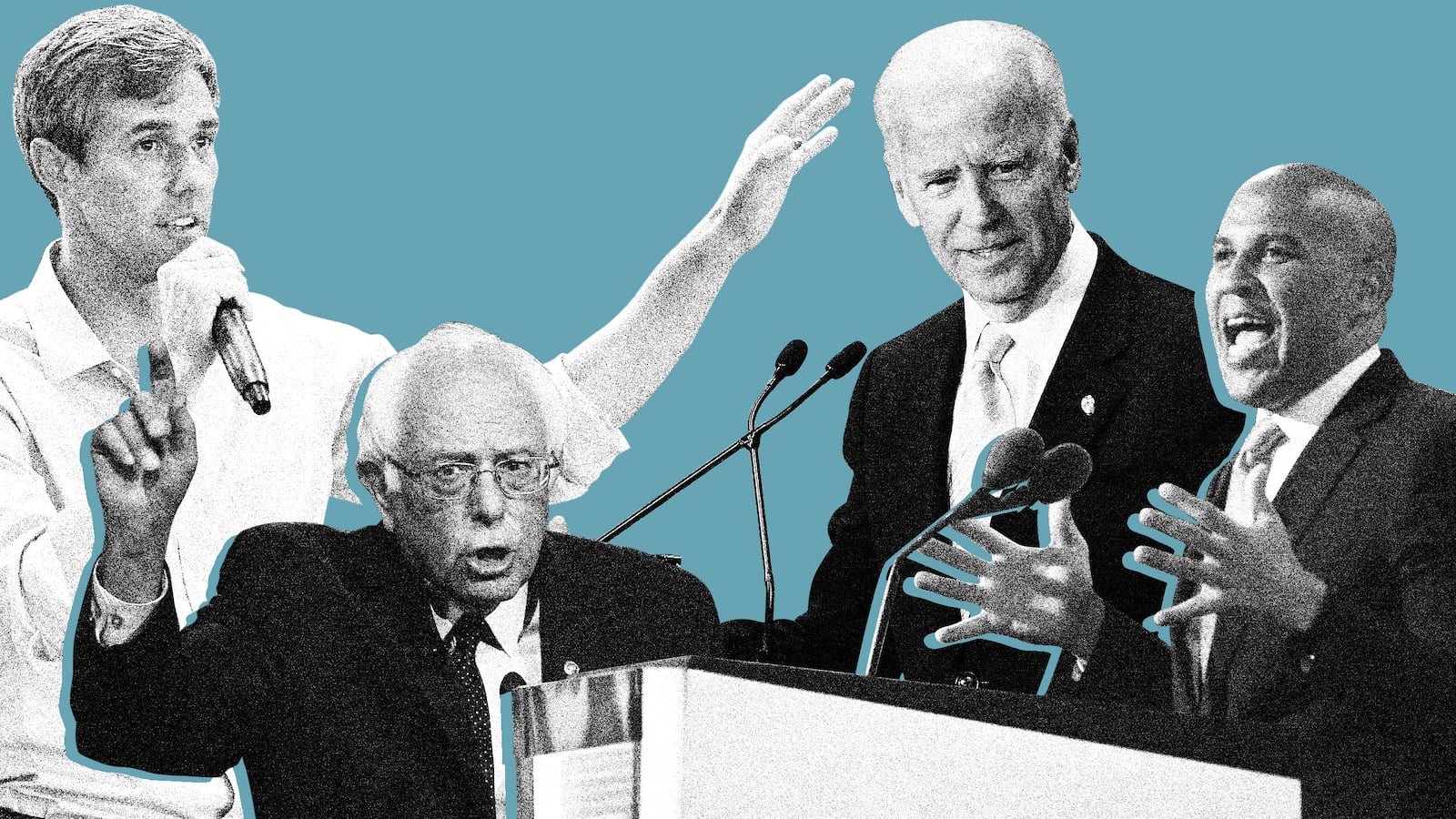I don’t know what it’s like outside D.C. right now, but among my fellow Democrats in Washington, there’s a kind of social sinkhole swallowing up all conversations longer than six minutes. You’ve probably already guessed the topic: Who should run in 2020?
You can also probably guess how the conversation proceeds. Approximately 45,000 would-be chief executives are poked and prodded from countless angles. Is he/she an inspiring speaker? Is he/she good at social media? Is he/she capable of turning out voters in a certain swing state, or among a certain demographic? Is he/she a he or a she? It’s like we’re casting for the Bartlett role in a West Wing reboot.
Which is why it’s surprising–and unfortunate–that the single most important question regarding 2020 is the one that almost never gets asked. Of all the would-be presidents out there, who would do the best job?
I don’t mean to imply that charisma doesn’t matter. When I wrote speeches for President Obama, I saw how a president can use inspiring remarks, a well-timed joke, or a viral video to advance an agenda. But charisma isn’t everything. Like just about everyone who has worked for any administration, I realized that President of the United States is a job. It’s a unique job. It’s a strange job. It’s a stunningly difficult job. But it’s a job nonetheless.
And it’s a different job from being a presidential candidate. The metrics we fall into using—likability, media savvy, authenticity, ability to clap back at a Trump tweet or host a livestream—are almost entirely focused on evaluating political skills. Those things are relevant, of course. You can’t do the job unless you make it through the interview. But that doesn’t mean the best interviewer is the best person for the job.
Which begs the question, who would be the best president on Jan. 21, 2021? I honestly don’t yet have a strong preference. But here are three qualities Democratic voters should be looking for—and three good questions to ask—as they decide among our soon-to-be-kajillion-person field.
First, does a candidate have a real understanding of the problems we’re facing? A single-issue candidate can make sense. A single-issue presidency does not. Good chief executives need a unifying theory of the challenges we face. And then they need to assemble the kind of team that can propose solutions grounded in reality rather than wishful thinking. Sure, around the margins, a charismatic president can expand the boundaries of the possible. But a president who believes that he or she can eliminate those boundaries entirely is going to waste precious time and wind up with little to show for it.
Second, does a candidate have the judgment to make the right choice in a crisis? When Barack Obama announced his campaign for president, no one imagined his eight years in office would be defined by a financial crisis. Ditto George W. Bush and 9/11, or George H.W. Bush and the collapse of the Soviet Union. Presidents lay the groundwork for success with careful planning. But they distinguish themselves by the decisions they make when their best-laid plans fall apart.
Third, does a candidate have the focus to make the most of those first two qualities? It’s not just Donald Trump who has a gerbil-length attention span. As news unfolds in real time, and news cycles have collapsed to mere minutes, the pressure intensifies for leaders to lurch from one splashy action to another. To reporters, to interest groups, and yes, even to voters, taking the time to think something over—or choosing not to respond to every news story—will frequently look like delay. But the greatest challenges facing America don’t change every 15 minutes. They’ve been here for decades. They’ll take time to solve. Presidents who can’t prioritize, who chase every shiny object, will find themselves unable to deliver.
Understanding. Judgment. Focus. It’s notable, and somewhat terrifying, that our current president possesses exactly zero of these qualities. His 2016 opponent, meanwhile, was quite likely the best prepared candidate in history. The fact that former reality TV star Donald Trump became Commander in Chief and former Secretary of State and Senator Hillary Clinton did not makes it easy to jump to a conclusion: Presidential politics is now entirely about style—substance is irrelevant, and perhaps even counterproductive.
But unless you think America is better off now than it was two years ago, that makes no sense. If there’s a (thin) silver lining to the cloud that is our 45th president, it’s that we should (and will) understand, once and for all, how crucial competence is in a chief executive. Yes, Donald Trump is racist and sexist and it seems quite possible he’s running a crime syndicate. But none of that should obscure a more basic, no less fatal flaw in the Trump presidency: He works for us, and he is very, very bad at his job.
Which brings us back to the looming primaries. Next year, when a horde of hopefuls descend upon Iowa and New Hampshire, we should absolutely be looking for a great candidate to take on President Trump. But we should demand more than that. In 2021, America really will stand at a precipice. The person who occupies the White House in the four years that follow will either reestablish the United States as the world’s essential nation or push us past the tipping point toward decline.
So, who should run for president? It’s simple. Someone who’s up for the job.






